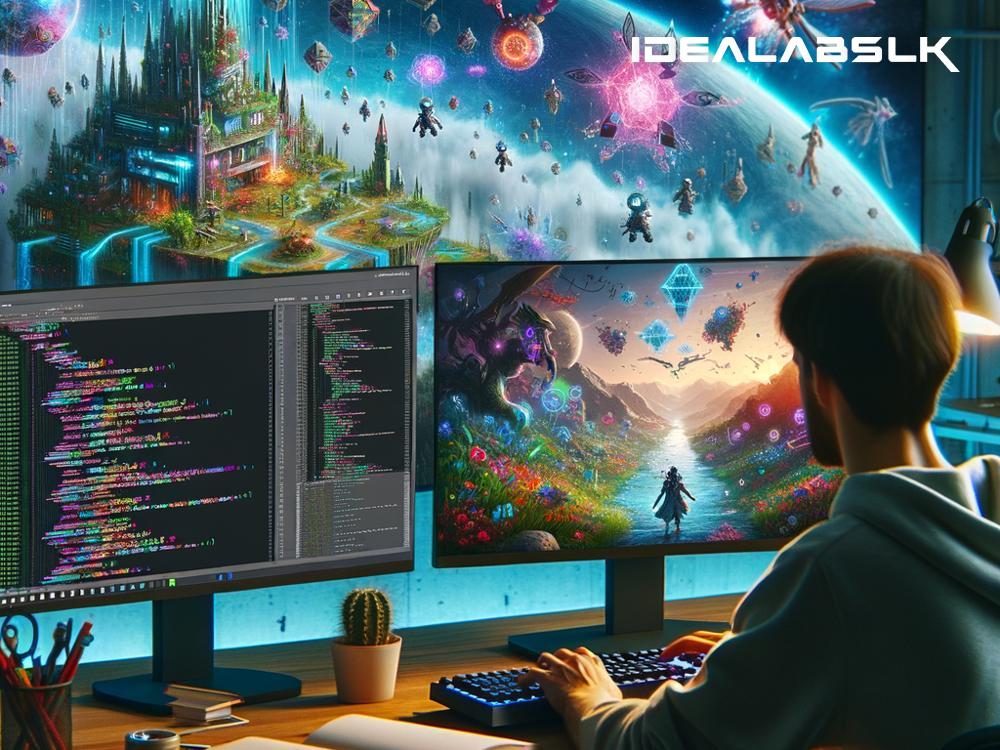How AI Will Help Create New Genres of Games Like Procedural Narratives and Adaptive Worlds in 2025
As we stand on the brink of 2025, the gaming industry is about to leap into an era where the boundaries of story, gameplay, and player interaction are redrawn. The magic wand behind this revolution? Artificial Intelligence (AI). AI is not just changing the way we play games; it's reshaping the entire landscape, introducing us to realms we never thought possible. Among these thrilling innovations are procedural narratives and adaptive worlds. But what exactly are these two concepts, and how is AI making them a reality? Let's dive in.
Procedural Narratives: Where Every Story is Unique
Imagine playing a game where the story unfolds uniquely for each player, not just in minor details but in major plot points, character developments, and endings. This is the promise of procedural narratives—a genre of gaming where AI crafts stories on the fly based on the player's actions, decisions, and even play style.
Traditionally, game narratives follow a fixed path, with players making choices within a predefined set of options. While this approach has given us memorable stories, it also means replaying a game feels somewhat predictable. Procedural narratives aim to change that. By 2025, AI will be sophisticated enough to analyze how you play, what choices you make, and even how you interact with other characters, using this data to dynamically generate storylines that are deeply personal and infinitely replayable.
Imagine a game where sparing an enemy's life early on leads to a complex friendship, altering the game's world in unexpected ways. Or a scenario where your preference for exploration over combat influences not just your character's development but the very nature of the conflict at the center of the story. This is the future procedural narratives promise, rendered possible by AI.
Adaptive Worlds: Ever-Changing Game Environments
Now, let's talk about adaptive worlds. If procedural narratives are about creating unique storylines, adaptive worlds are about crafting game environments that change in reaction to the player's actions. Picture walking through a forest that grows over time, cities that evolve based on your economic decisions, or enemies that adapt to your combat style, forcing you to constantly evolve your strategies.
AI is the cornerstone of these dynamic environments. By 2025, game developers will leverage AI to create worlds that not only react to player actions in real-time but also learn from them. This learning ability will enable the game environment to present challenges that are tailored to the player's skill level, ensuring that the game remains engaging for both novices and veterans.
Furthermore, these adaptive worlds will not just react to individual players but also to the collective actions of all players. Imagine an online game where the combined choices of its player base shape the evolution of the game's world, economy, and even its lore. This kind of collective storytelling and world-building, enabled by AI, will add a new layer of depth and community engagement to gaming.
The Technical Magic Behind the Scenes
So, how does AI manage these feats? At its core, the process involves machine learning algorithms that analyze vast amounts of data—ranging from individual player behavior to collective trends. These algorithms then use this data to make predictions and decisions, whether it's generating a new storyline or altering the game world.
Of course, the technology is not without its challenges. Creating AI that can craft compelling narratives and believable, responsive worlds requires significant advancements in natural language processing, emotional intelligence, and predictive analytics. However, with the rapid pace of technological development, these hurdles are quickly being overcome.
Conclusion: A New Era of Gaming Awaits
As we look forward to 2025, the gaming industry stands on the cusp of a revolution, fueled by AI. Procedural narratives and adaptive worlds are just the beginning. They represent a shift towards games that are not just played but experienced—where each player's journey is genuinely unique and where game worlds live, breathe, and evolve.
This new era promises to make gaming more personal, immersive, and engaging than ever before. And as AI continues to evolve, who knows what other new genres and gaming experiences await us? One thing is for certain: the future of gaming is bright, and it's one we can all look forward to shaping.

